Вы просматриваете архив за "January, 2015"
CFSR wind speed data
Climate Forecast System Reanalysis (CFSR) now available at Climate Wikience! The data are imported from NCDC NOAA
The temporal resolution of data is 1 hr while the spatial resolution is T382 Gaussian grid. Climate Wikience delivers regular latitude-longitude global grid with 0.25 deg x 0.25 deg resolution using bicubic interpolation.
CFSR does not direclty deliver wind speed, but eastward (u) and northward (v) wind speed vectors. The wind speed is calculated by Climate Wikience as square_root (u^2 + v^2).
Below is the CFSR wind speed at 10 meters above surface on the 28th of August, 2005. The hurricane Katrina was near its peak strength on that date. The isolines are contoured every 1 m/s (meters per second).
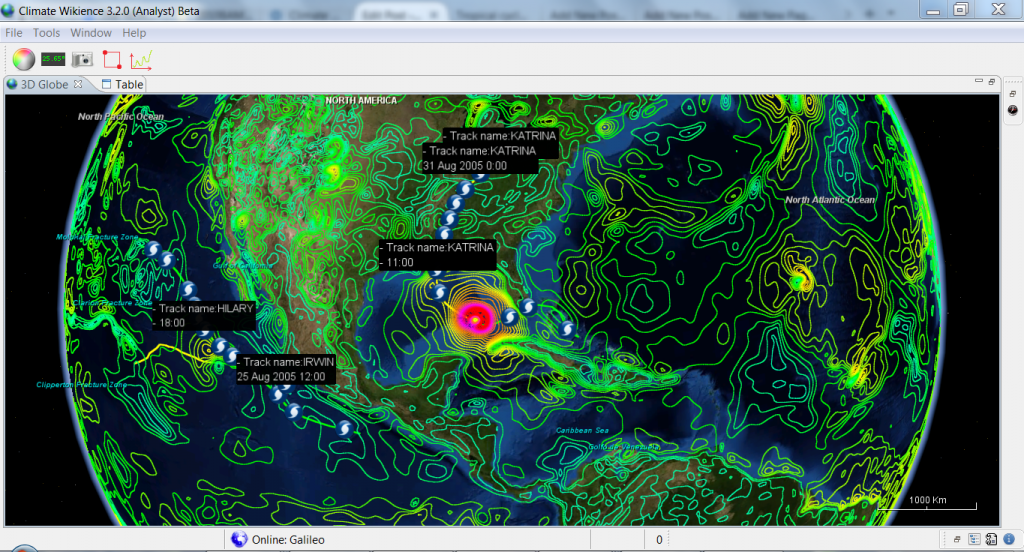
The zoom onto hurricane Katrina
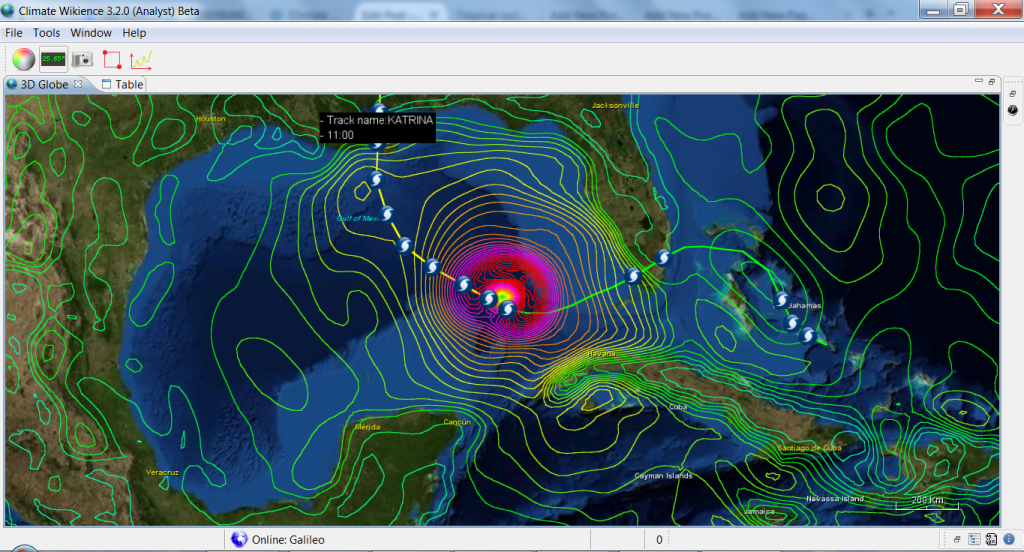
Satellite data on sea wind
Blended sea wind data product from several satellites including QuikSCAT, SSMIs, TMI and AMSR-E. The product is gridded and has global coverage with 0.25 deg x 0.25 deg spatial resolution. The temporal resolution is 6 hours The data was imported from NOAA National Climatic Data Center
The product was derived from multiple satellite observations: DMSP SSMI F08, F10, F11, F13,F14 F15; TMI; QuikSCAT; AMSR-E while wind direction was taken from NCEP Reanalysis-2 (that is why the product is called “blended”).
Below is eastward wind speed for 10 meters above sea surface (u10m) on the 28th of August, 2005.
The product was derived from multiple satellite observations: DMSP SSMI F08, F10, F11, F13,F14 F15; TMI; QuikSCAT; AMSR-E while wind direction was taken from NCEP Reanalysis-2 (that is why the product is called “blended”).
Below is eastward wind speed for 10 meters above sea surface (u10m) on the 28th of August, 2005.
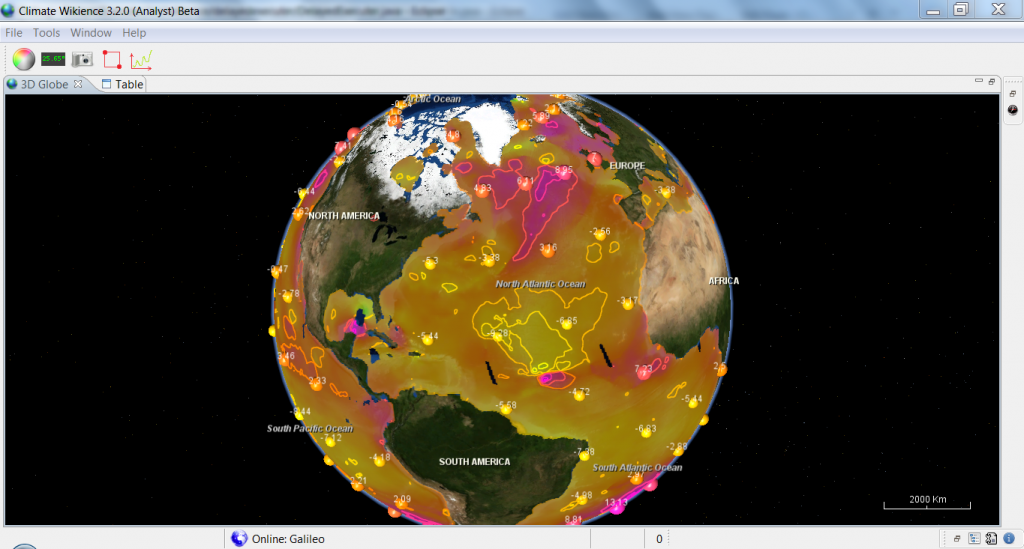
Please, visit the Earth remote sensing data page for details.
Tropical cyclones 1848 – 2014 active and online!
Climate Wikience now provides best tracks for all tropical cyclones since 1848 up to 2014. The data were imported from “IBTrACS – best tropical cyclone tracks”
Climate Wikience enables you not only to view tracks on the globe but also visualize related data like wind speed or cloud top temperature.
Hurricane Katrina near its peak strength and Terra MODIS Cloud Top Temperature. The 25th of August, 2005. (click the image for bigger version)
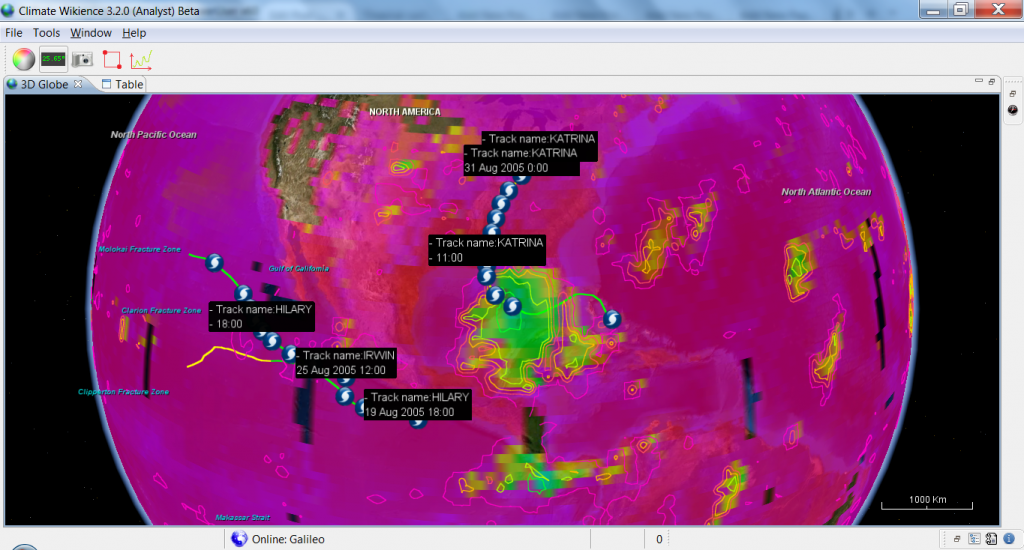
The track display is interactive. You can change the time for which related data are visulized simply by double-clicking on cyclone center. Climate Wikience will automatically change the time and loads the data.
Each cyclone center has associated data like latitude/longitude coordinates, the date and time and many other properties. You can visualize the associated data near cyclone center by adjusting the “Properties” tab.
Find out more at Tropical cyclones page
Isolines for satellite data
Now Climate Wikience displays isolines for satellite data. Until now, Climate Wikience was able to display isolines only for data without missing values like climate reanalysis. However, satellite measurements often have areas without data due to clouds or other reasons. Improved algorithm of Climate Wikience now draws isolines for data with missing values.
Below are examples of visualizing isolines for satellite data.
Click an image for its bigger version.
Below are examples of visualizing isolines for satellite data.
Click an image for its bigger version.
Eastward wind speed for 10 meters above sea surface (u10m) on the 28th of August, 2005. Blended data product from several satellites including QuikSCAT, SSMIs, TMI and AMSR-E.

NASA MERRA Leaf Are Index (LAI) on the 28th of August, 2010.
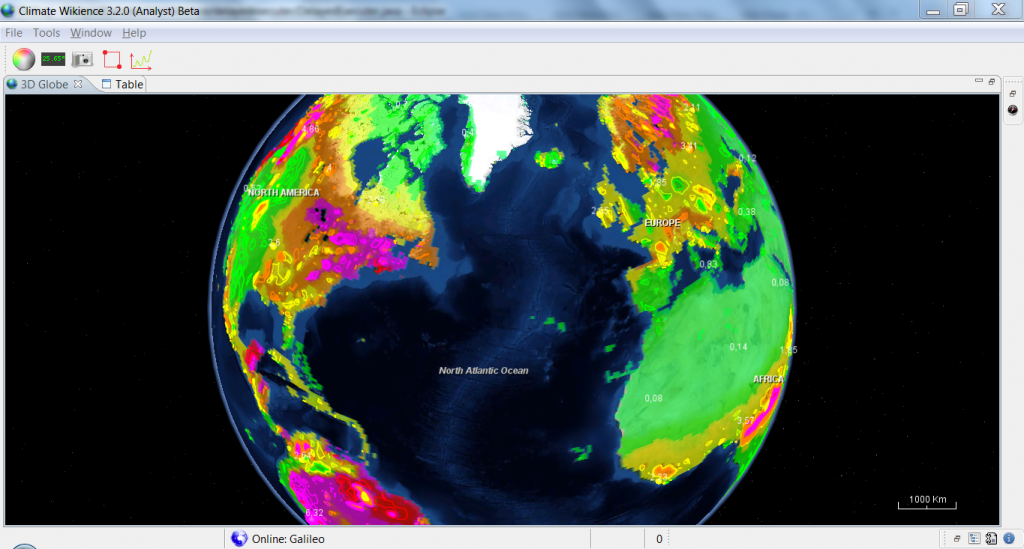
Zoom at North America, Eurasia, and South America.
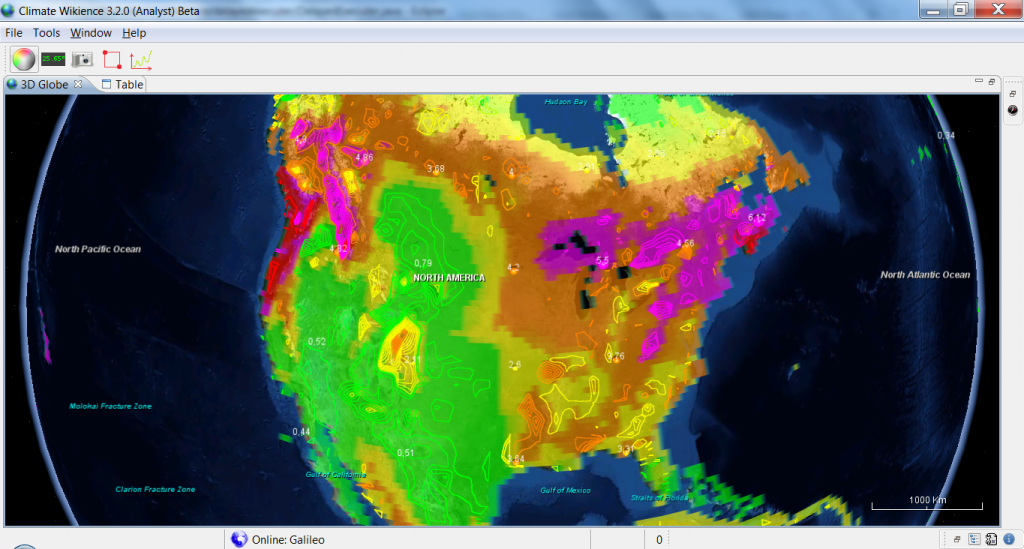
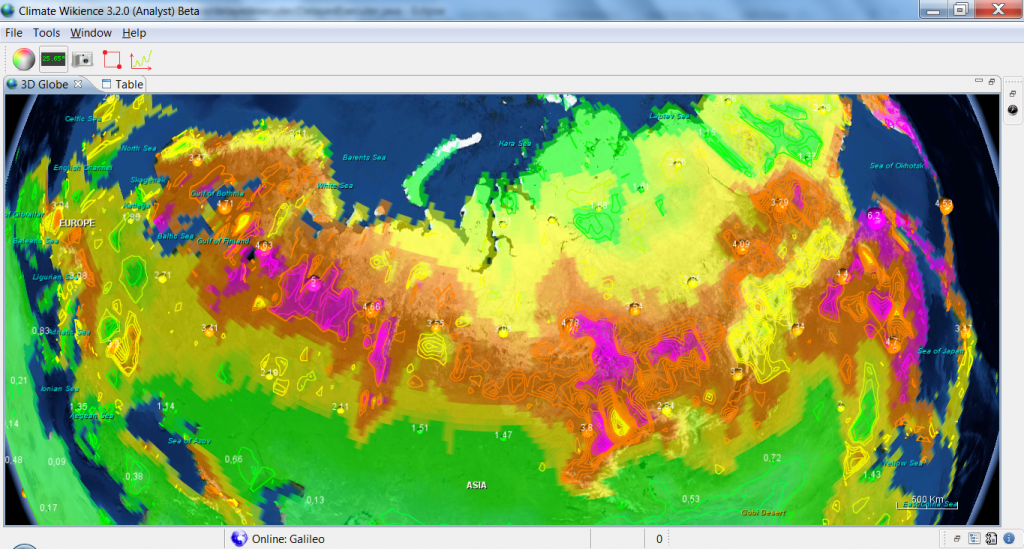
|
You can label any isoline at its arbitrary point. Simply enable “Click for value” option at the “Properties tab”. A label with isoline value will appear at the point where you clicked on the isoline. Click on the isoline again to hide the label.
|
Zoom over South America with several labeled isolines and increased width of isolines (compare “Properties tab” of this image and the one below).
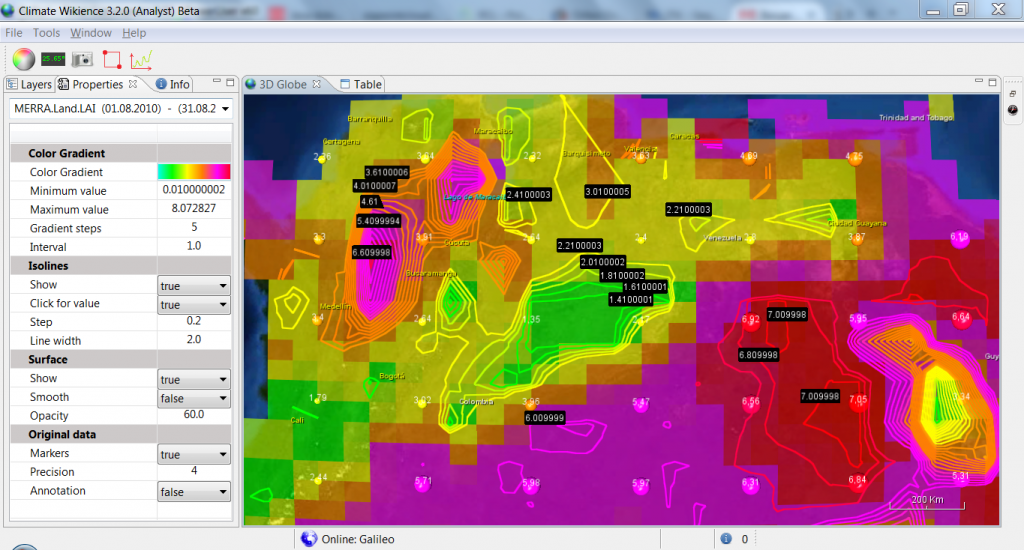
The same area without isolines labelling.
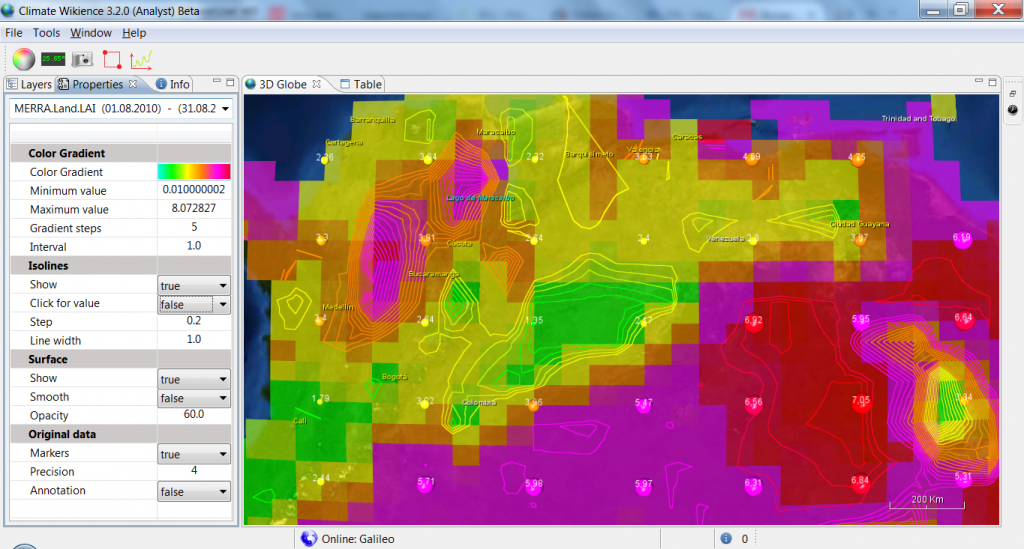
Aura OMI Nitrogen Dioxide (NO2) tropospheric concentration on the 1st of October, 2004.
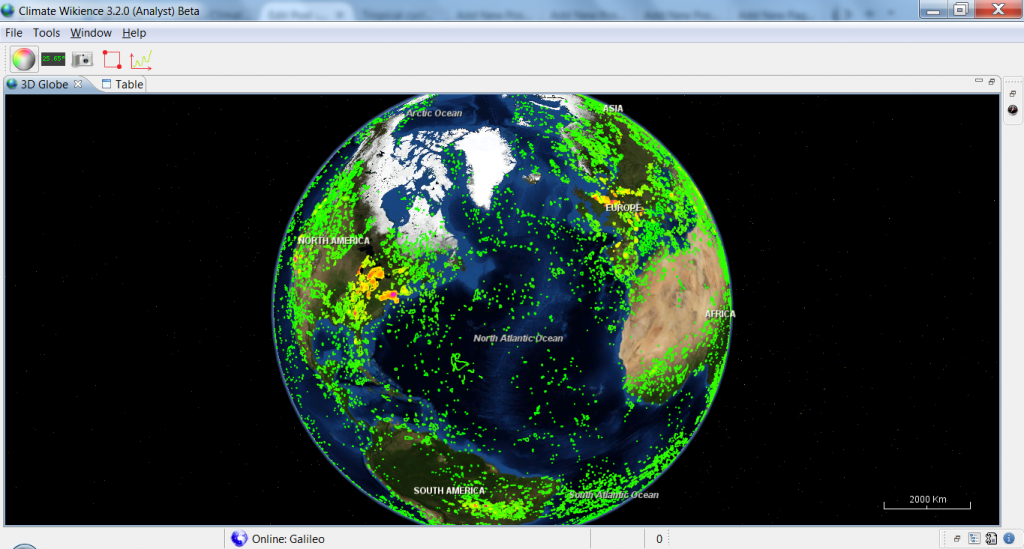
Zoom over Los Angeles.
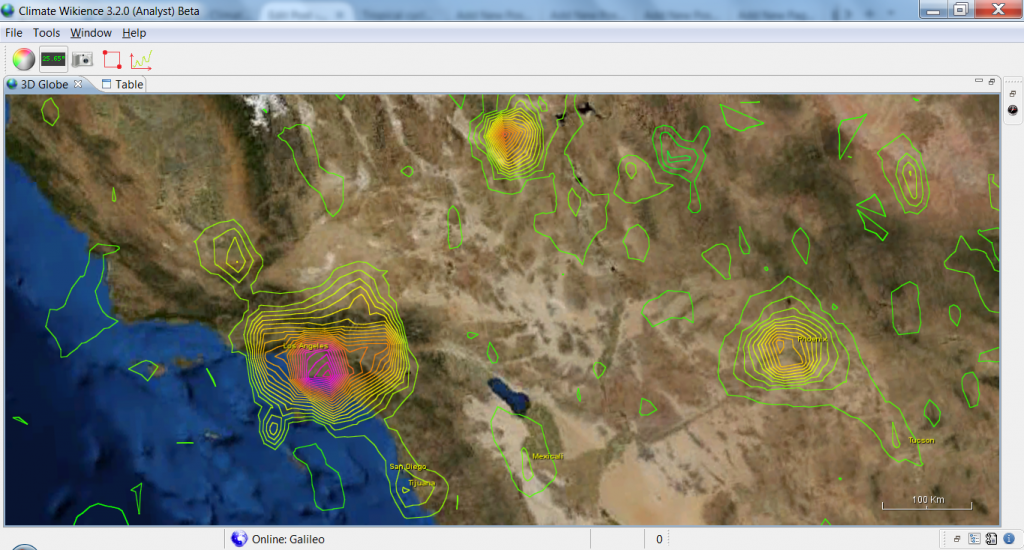
Terra MODIS Aerosol Optical Thickess (AOT) on the 1st of August, 2005.
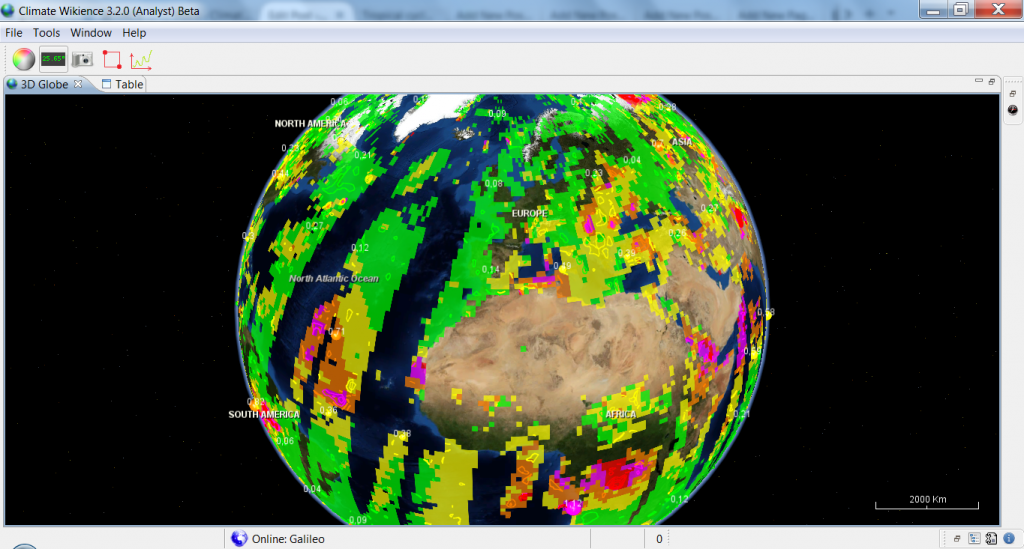
Zoom over Africa
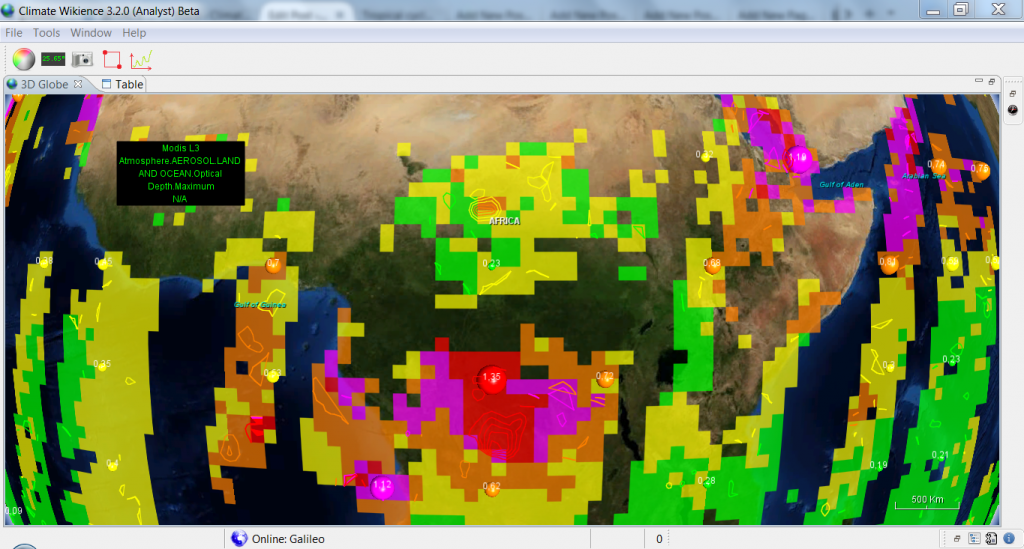
Terra MODIS Cloud Top Temperature on the 25th of August, 2005.
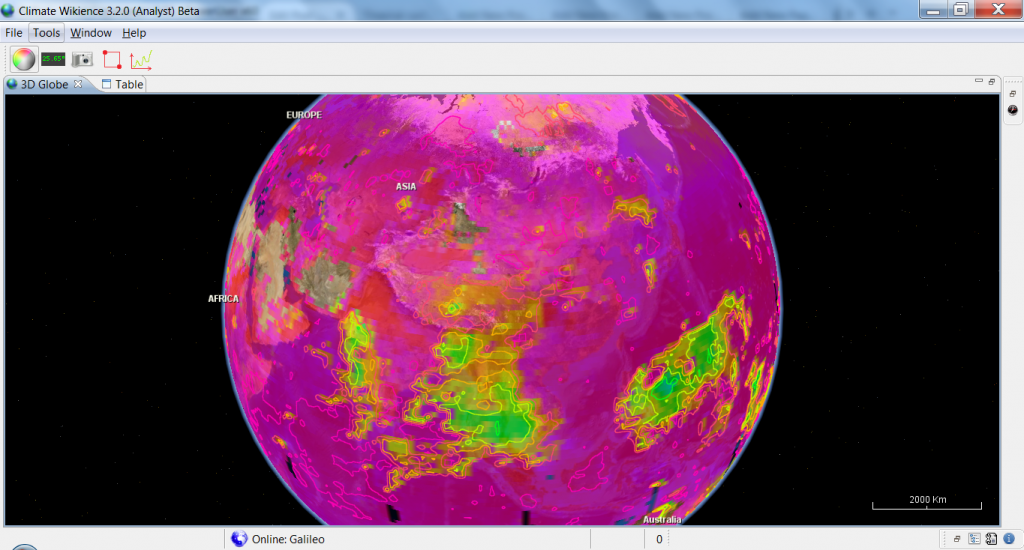
The 25th of August (2005) is the date for peak strength of hurricane Katrina.

The same areas without tropical cyclone tracks and without surface.

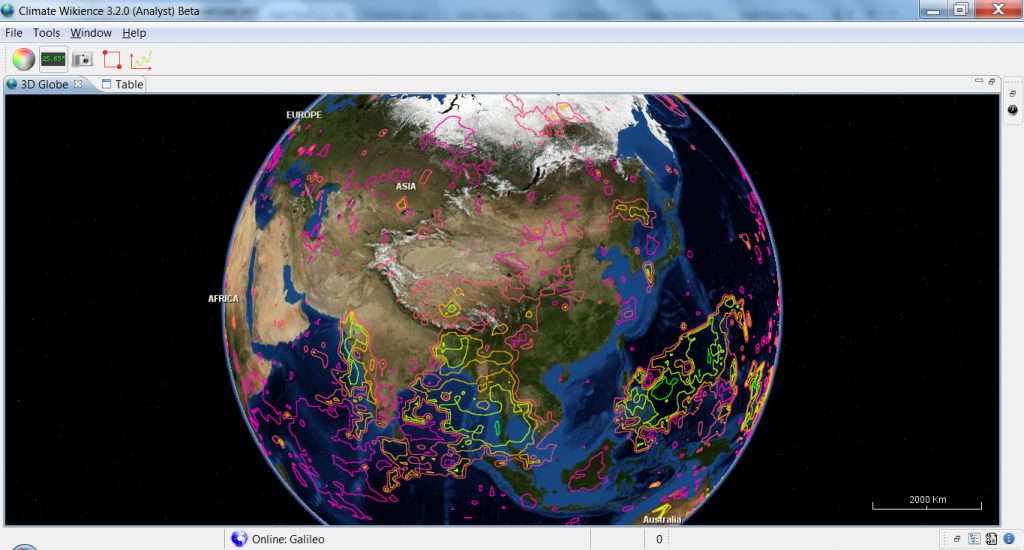
|
Climate Wikience is able to interactively visualize tropical cyclones. Find out more at Tropical cyclones page.
|
NASA MERRA Greeness Vegetation Fraction on the 28th of August, 2010.
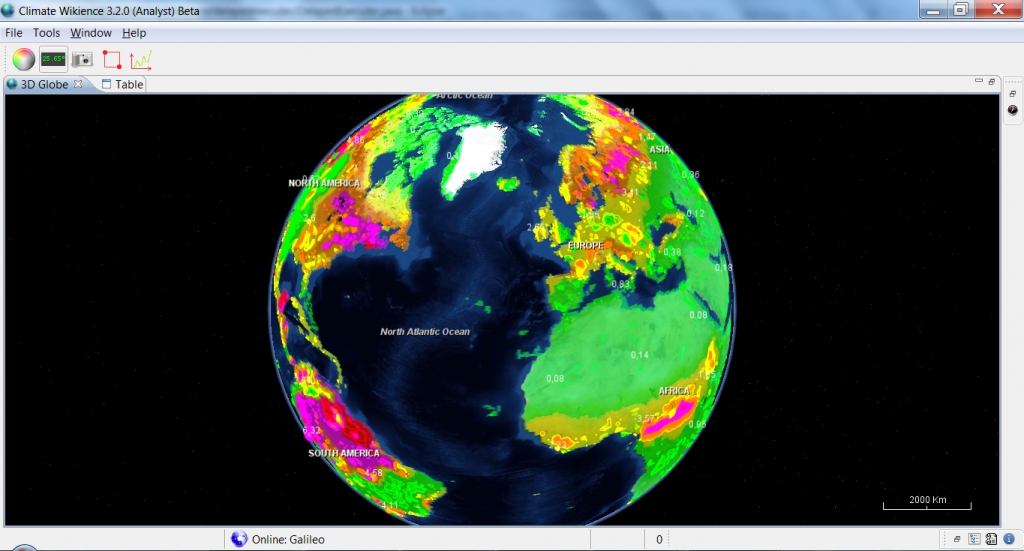
Zoom over North America and South America.
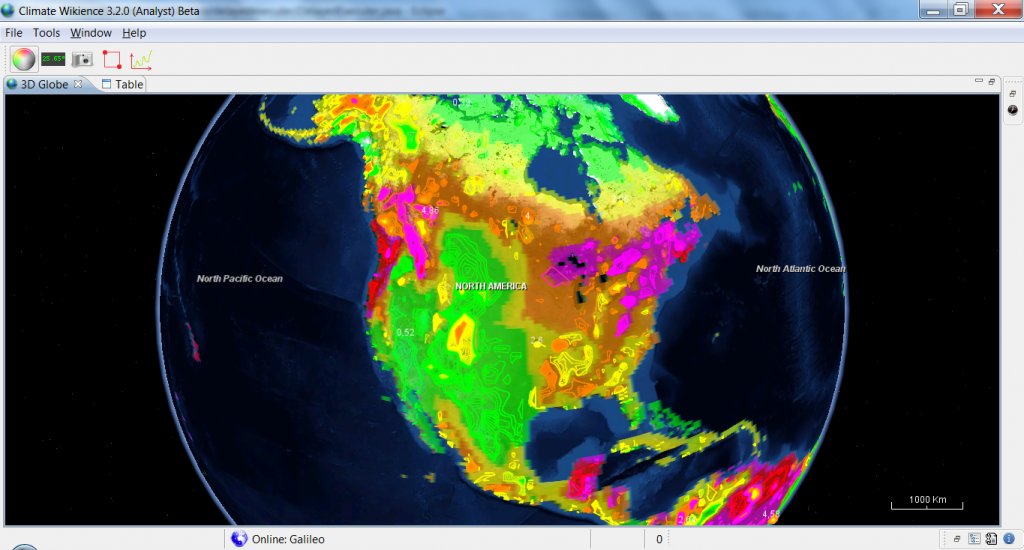
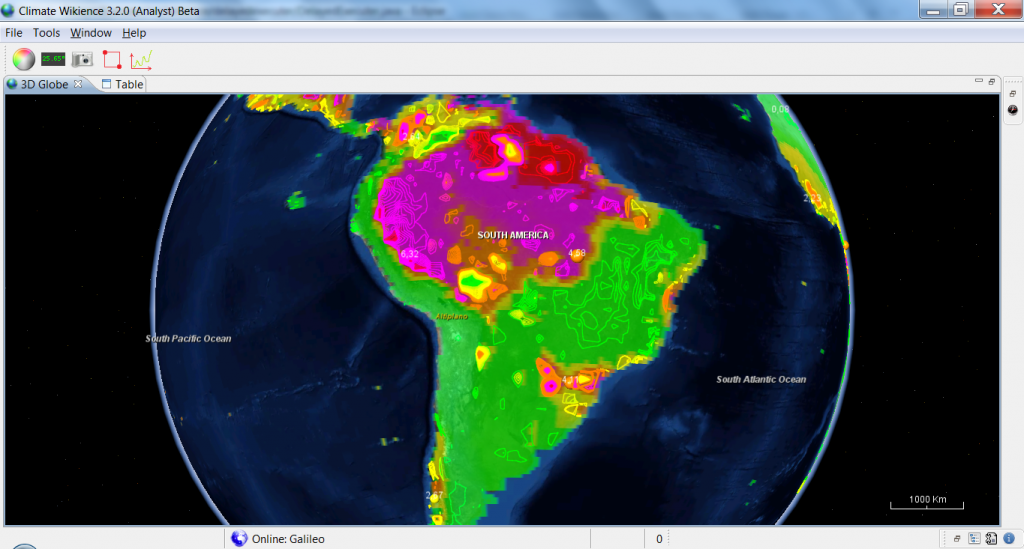
Download Climate Wikience
Archives
- February 2022 (1)
- May 2015 (1)
- April 2015 (1)
- February 2015 (8)
- January 2015 (4)
- November 2014 (5)
- October 2014 (4)
- May 2014 (4)
Tags
- Air pollution (1)
- Air pollution risk (1)
- AMSR-E (2)
- Aura Satellite (1)
- CFSR (3)
- Cloud top pressure (1)
- Cloud top temperature (1)
- Greeness fraction (1)
- Hurricane Katrina (5)
- IBTrACS (1)
- isolines (4)
- LAI (1)
- MERRA (1)
- MODIS (2)
- Nitrogen dioxide (2)
- OMI (2)
- QuikSCAT (2)
- RWikience (1)
- SSMIs (2)
- Time series (2)
- TMI (2)
- Wind speed (2)






